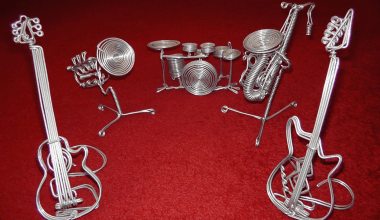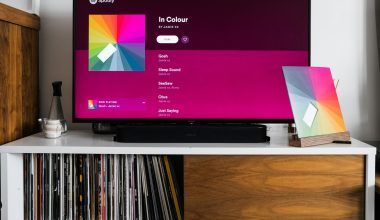For musicians, creating music is a passion, but turning that passion into profit requires strategy. Selling your music is more than just uploading tracks to a platform; it involves marketing, connecting with fans, and creating a sustainable career. Whether you’re an independent artist or part of a band, mastering the art of music sales ensures your talent reaches a wider audience while earning revenue.
This guide will walk you through every step, from distributing your tracks to building a strong fanbase, ensuring you have all the tools to sell your music successfully.
Understanding the Importance of Music Distribution
The first step in selling your music is understanding the distribution process. Gone are the days when physical CDs ruled the industry. Today, digital distribution dominates, giving artists access to global platforms like Spotify, Apple Music, and YouTube Music.
What is Digital Distribution?
Digital distribution is the process of making your music available on streaming services and online stores. Distributors like Deliver My Tune handle this, ensuring your songs are live on multiple platforms without the hassle.
Benefits of Digital Distribution:
- Global Reach: Sell your music worldwide, reaching fans across continents.
- Ease of Access: Manage all your music releases from a single dashboard.
- Fair Royalties: Earn up to 85% royalty on platforms like Spotify.
By choosing the right distribution service, you can focus on creating music while professionals ensure your tracks reach audiences everywhere.
Selecting the Best Platforms to Sell Your Music
Choosing where to list your music is a critical decision. While platforms like Spotify and Apple Music dominate the streaming landscape, niche platforms like Bandcamp cater to independent artists and provide better profit margins.
Top Platforms to Consider:
- Spotify: Known for its playlists, Spotify is a great way to grow your audience.
- Apple Music: Offers excellent sound quality and a loyal user base.
- Bandcamp: Ideal for selling digital downloads, merchandise, and offering fan subscriptions.
- Amazon Music: A growing contender in the streaming space.
- YouTube Music: Leverage the power of visuals to enhance your music’s appeal.
Steps to Get Started:
- Sign up with a music distribution service.
- Upload high-quality tracks and album art.
- Ensure metadata is accurate for proper categorization.
Tip: Focus on a mix of global platforms and niche sites to maximize your reach.
Pricing Your Music for Maximum Sales
Pricing can influence whether fans purchase your music or opt for free streaming. Striking a balance between affordability and profitability is key.
Pricing Strategies:
- Singles: ₹15–₹30 (India) or $0.99 internationally.
- Albums: ₹199–₹299 or $9.99 globally.
- Exclusive Releases: Charge a premium for unreleased or remastered tracks.
Bundle Offers:
Consider bundling your music with merchandise or offering discounts on full albums to encourage fans to spend more.
Pro Tip: Use fan insights to adjust pricing and experiment with promotional campaigns.
Social media platforms like Instagram, TikTok, and Facebook are powerful tools for promoting your music and driving sales. With billions of active users, these platforms offer an opportunity to connect directly with fans.
- Create Engaging Content: Share behind-the-scenes footage, snippets of upcoming songs, and live performance videos.
- Collaborate with Influencers: Work with influencers to expand your audience reach.
- Leverage Paid Ads: Target specific demographics to promote new releases.
Key Platforms to Focus On:
- Instagram: Use Reels to showcase music clips.
- TikTok: Viral trends can boost song streams.
- YouTube: Post music videos and shorts to engage visually.
Focus Keyword Tip: Highlight your journey to encourage fans to buy and stream your music online.
Building a Professional Artist Portfolio
A professional portfolio serves as your online resume, showcasing your music, brand, and story. Platforms like Deliver My Tune offer customizable portfolio templates to create a one-stop destination for your fans.
What to Include in Your Portfolio:
- Links to your music on Spotify, Apple Music, and Bandcamp.
- Biography detailing your musical journey.
- Blog posts or updates to engage fans.
- Merchandise options to increase revenue.
A well-maintained portfolio not only helps you sell your music but also attracts industry professionals like producers and event organizers.
Understanding Copyrights and Royalties
As you sell your music, protecting your work from unauthorized use is crucial. Copyright ensures your music remains your intellectual property.
Types of Royalties:
- Mechanical Royalties: Earned from physical and digital sales.
- Performance Royalties: Generated from radio plays, live performances, and public broadcasts.
How to Protect Your Music:
- Register your songs with a copyright service.
- Work with a music distributor that offers copyright support, like Deliver My Tune.
Focus Keyword Tip: Securing royalties ensures you can continue to profit from your music globally.
Exploring Alternate Revenue Streams
Selling music is just one part of building a sustainable career. Diversifying your income helps you grow financially while maintaining creative freedom.
Revenue Ideas:
- Merchandise: Sell T-shirts, posters, and vinyl records.
- Sync Licensing: License your music for ads, movies, and TV shows.
- Crowdfunding: Use platforms like Patreon to gain financial support from fans.
Live Performances:
Host live-streamed performances and sell tickets directly to fans. Platforms like StageIt allow artists to monetize virtual concerts.
Leveraging AI Tools for Better Music Production
High-quality production can make your music stand out. AI mastering tools provide affordable, professional-grade results, ensuring your tracks are ready for streaming.
Benefits of AI Mastering:
- Cost-effective and fast.
- Ensures consistency across all tracks.
- Allows artists to focus on creativity without worrying about technicalities.
Platforms like Deliver My Tune offer AI mastering starting at just ₹999, making it accessible for independent artists.
Pitching to Playlists for Better Visibility
Getting your music on playlists can significantly boost your streams and sales. Playlists on platforms like Spotify have millions of listeners, offering exposure to new fans.
How to Pitch Effectively:
- Personalize your pitch to playlist curators.
- Highlight your song’s unique appeal.
- Use professional tools like SubmitHub to increase your chances.
Creating Engaging Email Campaigns
Email marketing remains one of the most effective ways to sell your music directly to fans. Unlike social media, it allows for personalized communication.
How to Create an Email Campaign:
- Build a subscriber list from your website and social media.
- Send newsletters about upcoming releases and exclusive offers.
- Include direct purchase links for songs and merchandise.
Focus Keyword Tip: Use email campaigns to drive traffic and help fans discover new ways to buy your music.
Long-Term Strategies for Music Sales
Building a sustainable music career requires consistent effort. Here are some long-term strategies to ensure your music keeps selling:
- Regular Releases: Keep fans engaged by releasing new music frequently.
- Collaborations: Work with other artists to tap into their fanbases.
- Engage Your Audience: Reply to fan comments and host Q&A sessions to foster loyalty.
Conclusion:
Selling your music is a journey that combines creativity, strategy, and persistence. From selecting the right platforms to engaging with fans on social media, every step contributes to your success.
Start with a reliable distributor like Deliver My Tune to simplify the technicalities and focus on what you love most—making music. By leveraging tools, platforms, and strategies, you can not only sell your music but also build a thriving career as an independent artist.
Related Articles:
For further reading, explore these related articles:
- How to Become a Successful Music Artist in India in 2024?
- Promo Cards on Spotify: A Game Changer for Artists
- Understanding ISRC Codes and Their Importance in Tracking and Distributing Your Music
For additional resources on music marketing and distribution, visit Deliver My Tune.






